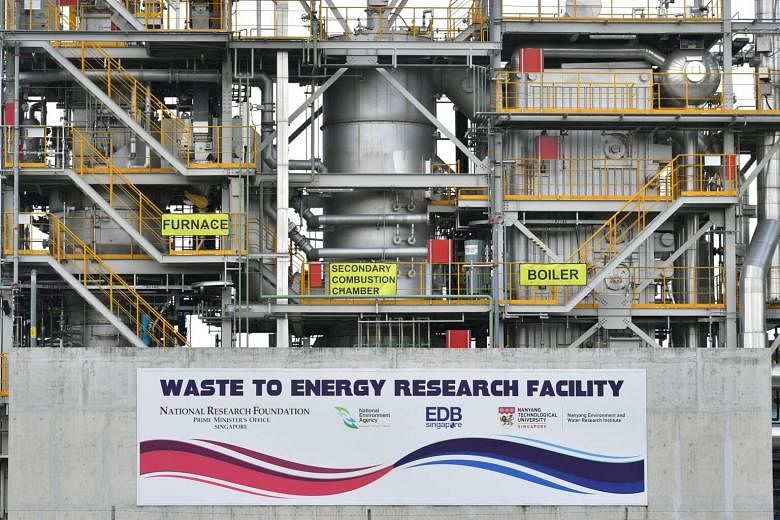We thank Dr Snigdha Sharma for her suggestions (Look into generating energy from plastic waste, June 8).
We have designated 2019 as the Year Towards Zero Waste, where we will adopt a circular economy approach to conserve resources for a sustainable Singapore.
This involves viewing our waste as a valuable resource and seeking to close as many waste loops as possible.
Indeed, in Singapore, all incinerable waste, including plastic, is disposed of at waste-to-energy plants, where the energy content of the waste is converted into electricity.
This enables the incineration plant to power itself while excess energy is sold to the grid.
This reduces landfill demand and also eliminates the problem of plastic contamination on land and sea.
Nonetheless, as part of our continuous efforts to develop our waste management capability, the National Environment Agency (NEA) is building up the local recycling industry to close the waste loop domestically where possible.
We are also currently studying recycling solutions and technologies available in the market, including those mentioned by Dr Sharma, and assessing their suitability.
We are also taking a holistic approach, and looking for solutions beyond just plastic waste or energy generation.
For example, NEA and the Nanyang Technological University recently launched the waste-to-energy research facility, which turns municipal solid waste into electricity and also valuable resources.
The latter include slag which can potentially be used for construction and residual metal alloy granulates which can be recycled.
NEA has also approved a regulatory sandbox pilot trial of a micro auto gasification system (Mags) at Gardens by the Bay.
The Mags takes in a mixed waste stream and produces biochar, which can be used in the Gardens, as well as syngas, which is converted for hot water treatment in the Gardens' food and beverage outlets.
In Singapore, households generally reuse plastic bags to dispose of their waste hygienically.
A tax on plastic may just encourage the use of substitutes, like paper or biodegradable bags, which are not necessarily more resource-efficient.
As such, we are focusing on a more sustainable approach of implementing Extended Producer Responsibility for packaging waste, including plastic, avoiding the use of all disposables and using reusables wherever possible.
Even as Singapore manages the disposal of plastic bags well, there is room for us to cut down on excessive usage.
Desmond Tan
Director, Waste and Resource Management Department
National Environment Agency

